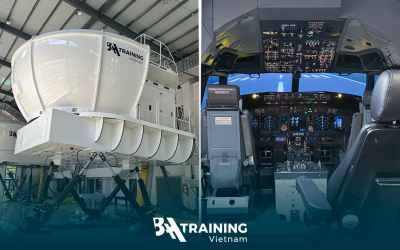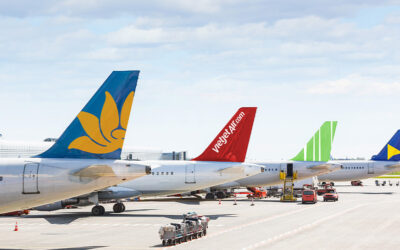2013 in aviation has started with a lot of hopes and positive outlook. However, this time, we want to focus on the unfortunate, yet important events in the industry, which influenced the development of new rules and regulations and its implementation in the aviation training industry.
This year was marked by a few unfortunate events which are hurtful to remember. A few of the catastrophic aviation events that happened were: SCAT Airlines Flight 760 in Kazakhstan, Lion Air Flight 904 in Indonesia, Asiana Airlines Flight 214 in San Francisco, Lao Airlines Flight 301 in Laos, and Tatarstan Airlines Flight 363 in Russia. One aspect that each of these flights have in common is that catastrophes happened during the final approach and either by initiating or performing the go-around. In a few of these accidents, bad weather conditions also played an important role. Even though the conclusion of these accidents won’t be published for awhile now, previous aviation accidents has given a beginning for new safety rules, advanced training and stricter pilot training regulations.
Even though it is difficult to think about the accidents that caused a number of deaths, we need to look forward on how these and past accidents impacted the safety regulations and training programs in aviation industry. First up are the pilot and cabin crew fatigue regulations. As we looked earlier, all the major year accidents happened during the final approach, which means that fatigue does play a vital role in the pilot performance. Early next year, FAA will impose new rules which will incorporate the latest fatigue science to set different requirements for pilot flight time, duty period and rest based on the time of day pilots begin their first flights, the number of scheduled flight segments and the number of time zones they cross. On the other hand, EASA has been struggling with the implementation of the scientific suggestions and has been allowing pilots to perform landings after being awake for more than 22 hours. There are certainly a lot to desire in EASA‘s flight fatigue regulations, but it has slowly been improving.
According to the FAA issued Advisory Circular (AC) Stall and Stick Pusher Training which is planned to be set in place by the end of 2014 by both FAA and EASA are new ground and flight training that enables pilots to prevent and recover from aircraft stalls and upsets. Crosswind training and training for wind gusts expansion, enhanced runway safety procedures. All of these pilot training enhancements will have an impact on the future simulator standards which will have to be implemented in five years once the aviation associations pass the new regulations. In addition to the new training requirements, FAA and EASA will also request improvement in training for more effective pilot monitoring and require air carriers to use data to track remedial training for pilots with performance deficiencies, such as failing a proficiency check or unsatisfactory performance during flight training. All these new requirements and training enhancements should improve the training centre quality, the education it provides and pilot preparation for various situations in the cockpit.
By the end of the year Federal Aviation Administration released the fact sheet „Report on the Operational Use of Flight Path Management Systems“ which concluded the analysis of more than 730 incidents, 26 accidents and some 9,100 flights word-wide between 2001 and 2009. This report raised valid concerns on pilot reliance on automation and losing skills to manually land an aircraft. Study found, that among other things, that manual flying errors contributed to about 60% of selected accidents and 30% of selected incidents perused by the team. Study suggests that pilots dedicate too much importance to the aircraft automation because of the pressure from the airlines and in some instances, have a lack of manual airplane landing training.
Accidents are always devastating yet it needs to be viewed as a lesson for the future improvements. This year, aviation industry has done a great job in advancing the safety: paying close attention to the aircraft safety; improving training quality requirements; reevaluating the human factor; and most importantly, increasing the attention to the pilot training importance. So as the entire aviation industry is impoving, all that we can hope for is less accidents and safer traveling.







